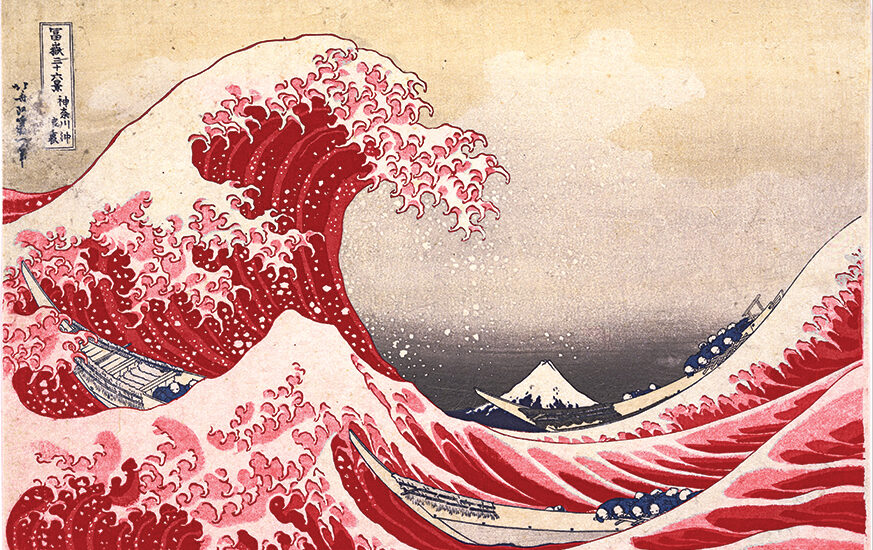
KJIPUKTUK (Halifax) – Residents of Japan, Indonesia, South Korea, Taiwan, Vietnam, a few Chinese provinces, and Zambia have menstrual leave. Recently Nova Scotia removed taxes on tampons and pads, with much public approval. Paid menstrual leave is the logical next step.
Employees’ productivity increases when they are happier and healthier. For half the population both productivity and happiness are greatly affected by menstruation.
Being 31 years old, I have spent lots of time hiding that I have my periods for the past twenty years. It is only relatively recently that I can say I genuinely look forward to bleeding every month.
When puberty arrived and bleeding started I was quickly convinced that this rather than special was more of a drawback. Premenstrual syndrome (PMS) symptoms were a reason to medicate and power through, as if slowing down to rest and feel somehow was a bad thing. After much self-directed learning I now have come to see every phase of my cycle as a constant to embrace. From the high energy phase of ovulating, to the recuperating and reflection of menstruation there are always positive benefits to experience.
Societal norms bear some responsibility for people not experiencing those positive benefits, and we have a long way to go. Ads for period products on TV promote shame and confusion about periods by showing blue liquid instead of a realistic red. Colour company Pantone, which releases a highly publicized yearly theme color, responded by creating a Period Red shade in 2020.
Menstruation is not a shameful secret, it is an intense and empowering time. If we openly discussed periods we would all know ways to alleviate PMS symptoms, such as modifying diet, exercise and medication for extreme cases.
Never having discussed periods at length with my parents left me and many others to learn about menstruation in the sterile way taught at school that generally reflects dominant cultural attitudes.
The notion that menstruation is an aspect of life that must remain hidden is now is completely opposed to my lifestyle.
Learning to reclaim the emotions that accompany menstruation can be done by tracking cycles, following period coaches online, and fully leaning into and embracing periods. I love free bleeding at home into a towel instead of using tampons, a practice which reduces my risk of toxic shock. On my heavier days I look forward to having a long bath with candles, swaying my hips in the water to stretch.
Celebrating menstruating is a good thing, and feels good. There is so much to gain for a society that values non stop work from learning this. Being aware of an external reminder to take time to relax is beneficial to everyone who might otherwise be cruel to their bodies and minds.
As a mom it is so important for me to normalize menstruation, so the next generation can look forward to a time of enhanced emotional depth and self care. Having the option of taking one or two days off (likely the heaviest most intense days) would alleviate so much suffering, and lead to widespread acceptance of our bodies, our emotions and open us up to a healing process.
It is time Nova Scotia and Canada joined other countries in instituting paid menstrual leave.
See also: If you can see it you can be it: Nova Scotia media must stop marginalizing breastfeeding
Check out our new community calendar!
With a special thanks to our generous donors who make publication of the Nova Scotia Advocate possible.
Subscribe to the Nova Scotia Advocate weekly digest and never miss an article again. It’s free!




Yes!!! Finally somone is saying it! I have watched my so many of my female friends and family members ‘soldiering on’ when they are in pain during their period. I used to have to take one of my daughters to the hospital for a shot of Demerol every other month because she was in so much pain. I have worked in work places where workers roll their eyes and make note of the fact that a female employee is ‘sick’ every time in this part of the month. Periods happen. They can be very painful. Why are we expected to hide the pain? Why are women expected to pretend everything is ‘normal’? Why are women expected to ‘solider through’? And where is my tax rebate for all the taxes I had to pay on my menstruation products during the twenty five years I had a period!?
I would rather see generous mandatory health/medical/sick leave and better flexible work arrangements for all than specific menstrual leave. My concern with specific menstrual leave are as follows:
* Depending on the climate of your workplace and the attitude of your employer (unconscious bias, sexism, lack of gender parity, etc.) formally claiming menstrual leave days could be difficult, embarrassing, harmful to career advancement, etc. For instance, it may be acutely dangerous for a trans man or nonbinary person who menstruates to formally request menstrual leave.
* On a related note, the spectre of increased absenteeism (i.e., an additional 1-3 days per month / 12-36 days per year) could make it that much harder for women, trans men, and nonbinary folks (anyone who “looks like” they may menstruate) to obtain gainful employment. Many employers are already biased (unconsciously or otherwise) against job candidates who are stereotyped as more likely to take parental leave (i.e., recently married young women), even though parental leave is open to people of all genders.
* Premenstrual and menstrual symptoms vary so widely from one person to the next– from mild twinges of discomfort to severe pain and flu-like symptoms. I’m doubtful that any set number of days would meet the needs of all people who menstruate. Would people who don’t menstruate / no longer menstruate / have mild symptoms feel that they were missing out on a workplace benefit? What about people whose periods are irregular or whose symptoms vary from one month to the next? Would HR personnel or management require proof of some kind?
* Related to the above, bureaucratic processes used to track or verify menstrual leave requests could unintentionally pathologize (rather than de-pathologize) an uncomfortable but normal bodily process. Would people who menstruate be expected to have their doctor provide a note describing their cycle? Is this leave benefit clawed back when menopause approaches?
For all the reasons described above, I feel that generous mandatory illness/health leave and flexible work arrangements are the way to go. Many of my colleagues and I have discovered that simply working from home (due to the pandemic) makes mild illnesses and menstruation so much more comfortable: privacy, sweatpants, your own washroom, your own medicine cabinet, the ability to take a nap during your lunch break. With the comforts of home available to me, I would rather manage my symptoms and keep up with my work duties than take a full day off. For people whose jobs can’t be done at home, mandatory general health/illness leave is the only equitable option. Whether anyone menstruates (or not) is not information that anyone should have to share with their employer.
I agree with you whole heartedly! While it annoys me that all of my sick time is claimed because I menstruate, I fear this would be a way to further discriminate against women.
Thanks for your support. And that’s a really good point– menstrual symptoms shouldn’t take all your sick leave! More generous mandatory paid health & illness leave is definitely the way to go.
This would really be helpful for the first couple days. I have anemia so my cycle is pretty hard on my body where i already have a deficiency in my blood, losing a bunch really kills my energy.
There is definitely some hard to bare pain the first couple days. I dont take painkillers just natural remedies Which i love But it only eases the pain But having rest helps a lot. Not running myself for 8-9 hours.